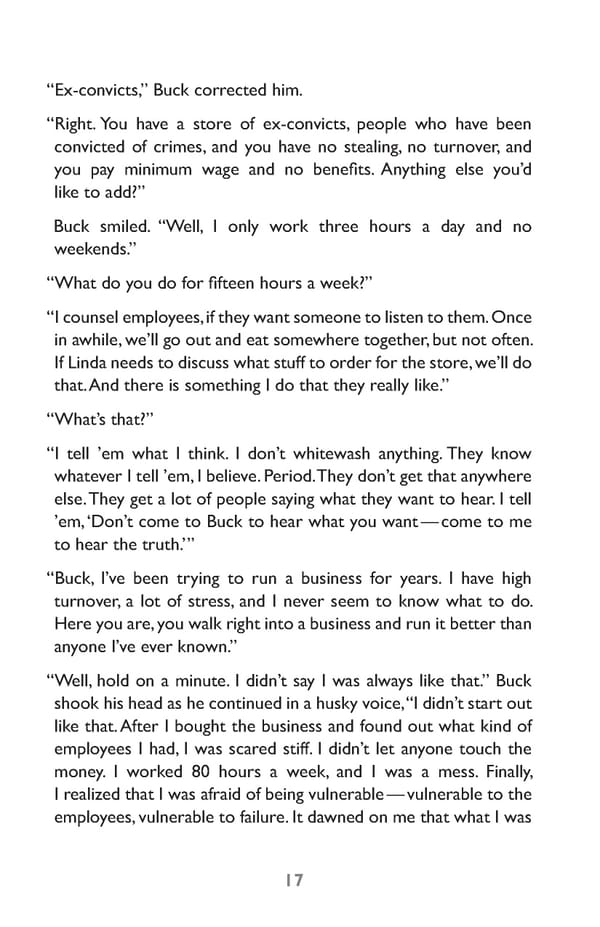“Ex-convicts,” Buck corrected him. “Right. You have a store of ex-convicts, people who have been convicted of crimes, and you have no stealing, no turnover, and you pay minimum wage and no bene昀椀ts. Anything else you’d like to add?” Buck smiled. “Well, I only work three hours a day and no weekends.” “What do you do for 昀椀fteen hours a week?” “I counsel employees, if they want someone to listen to them. Once in awhile, we’ll go out and eat somewhere together, but not often. If Linda needs to discuss what stuff to order for the store, we’ll do that. And there is something I do that they really like.” “What’s that?” “I tell ’em what I think. I don’t whitewash anything. They know whatever I tell ’em, I believe. Period. They don’t get that anywhere else. They get a lot of people saying what they want to hear. I tell ’em, ‘Don’t come to Buck to hear what you want — come to me to hear the truth.’” “Buck, I’ve been trying to run a business for years. I have high turnover, a lot of stress, and I never seem to know what to do. Here you are, you walk right into a business and run it better than anyone I’ve ever known.” “Well, hold on a minute. I didn’t say I was always like that.” Buck shook his head as he continued in a husky voice, “I didn’t start out like that. After I bought the business and found out what kind of employees I had, I was scared stiff. I didn’t let anyone touch the money. I worked 80 hours a week, and I was a mess. Finally, I realized that I was afraid of being vulnerable — vulnerable to the employees, vulnerable to failure. It dawned on me that what I was 17
 Story 4 | Conviction Page 16 Page 18
Story 4 | Conviction Page 16 Page 18